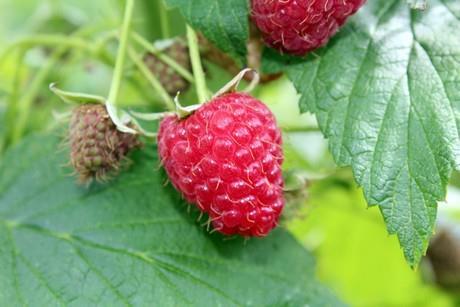Spanish raspberries growers have a solution to control Spider Mite pest
Typically, raspberry growers in southwestern Spain grow two crops at different stages, in production at the same time. One is grown from already rooted bushes, previously pruned back, and the second crop is planted quite recently. Thanks to this raspberry cropping practice, Spanish growers are successfully extending their harvest calendar by supplying fruit from October to July.
Nevertheless, Spanish raspberry growers facing a range of pests to control. One of the key challenges is spider mite. Biobest, an expert in pollination and biological control, have a solution to combat this pest. Their Andersoni system has proved its worth and playing an important role in the prevention and control of a range of raspberry mite pests, adapting well to the crop and growing conditions in this region of Spain.
Miguel Claros, company's technical advisor, explained control strategies tend to start with preventative releases of Andersoni-System in combination with Phytoseiulus-System and Swirskii-System. “Our control strategy also recommends introducing Andersoni-System later in the season to augment control; at this stage in combination with our Feltiella-System and Phytoseiulus-System,” he added.
The andersoni mites, according Claros, feeds not only on a range of mites, but also eats pollen. This means they can be used effectively as a preventative measure, helping them establish a good population in the crop before the pest pressure has a chance to build up.
María Parra, technical advisor at Biobest, said Andersoni also benefits from being highly mobile. It can spread quickly and easily over raspberry crops, especially where plants are touching. “Under normal conditions, the predator also has a shorter lifecycle. Taking just 7-8 days at 21°C (45-46°F) to complete a generation, it has the ability to build up a population more quickly than the pest mites,” she added.
Moreover, Andersoni system can successfully withstand large temperature changes - from 6°C to 35°C.
Biobest is the Belgian expert in pollination and biological control knows everything about these topics. In 1987, they were the first company to put bumblebees on the market. Biobest strongly focusses on Research and Development. The company also provides clients with tailored advice for their crop with technical support and close follow-up worldwide.
Find more about company’s product on its website.





